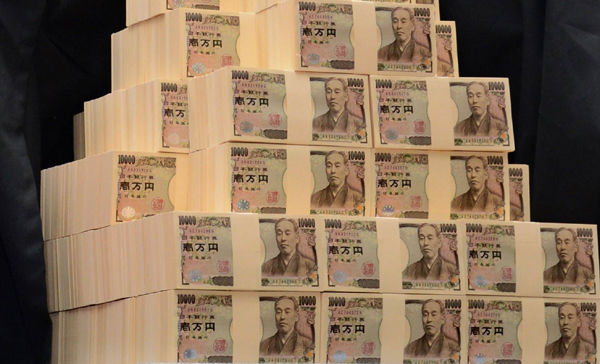Wednesday, 09 September 2015 14:31
 TOKYO: Currency traders sold the yen Wednesday as they moved into riskier assets on a wave of surging global equity markets, with a range of emerging market units getting a boost.
TOKYO: Currency traders sold the yen Wednesday as they moved into riskier assets on a wave of surging global equity markets, with a range of emerging market units getting a boost.
In Tokyo, the greenback strengthened to 120.59 yen from 119.82 in New York, while the euro rose to 134.97 yen against 134.22 yen.
Investors tend to buy Japan’s currency as a safe-haven during times or turmoil or uncertainty.
Meanwhile, the Australian dollar recovered from six-year lows against the greenback to buy 70.45 US cents, up from 69.75 cents on Tuesday.
The dollar also slipped to 46.79 Philippine pesos from 46.93, to 14,250 Indonesian rupiah from 14,280 rupiah, to 1,189.39 South Korean won from 1,200.66 won, and to 4.3175 Malaysian ringgit from 4.3403 ringgit.
Investors’ appetite for risk returned on a wave of rallies across global stock markets after they were hammered by intense volatility in recent weeks.
Equity markets have taken a pounding linked to long-running concerns about China’s economy while investors try to figure out when the US Federal Reserve will lift interest rates.
“It’s a bit of a continuation of what we saw in the European and American session and that’s a fairly classical risk-on move by markets,” Sam Tuck, senior currency strategist at ANZ Bank New Zealand, told Bloomberg News.
“Stock markets are still doing the driving at the moment for currencies.”
A disappointing US jobs report Friday clouded the outlook for a rate hike by the US central bank at its September 16-17 policy meeting, with analysts still uncertain about the prospect of a rise.
Higher rates would tend to attract investors in search of better returns to dollar-denominated assets, lifting the unit.
In other trading, the dollar weakened to Sg$ 1.4165 from Sg$ 1.4177, to Tw$ 32.56 from Tw$ 32.79, to 66.44 Indian rupees from 66.55 rupees, while it rose to 36.09 Thai baht from 35.79 baht.
The Chinese yuan fetched 18.90 yen against 18.82 yen.
The euro bought $ 1.1182 compared with 1.1202 in US trade, after getting a boost Tuesday from news that eurozone second-quarter economic growth was revised higher, to 0.4 percent quarter on quarter, from 0.3 percent.


























